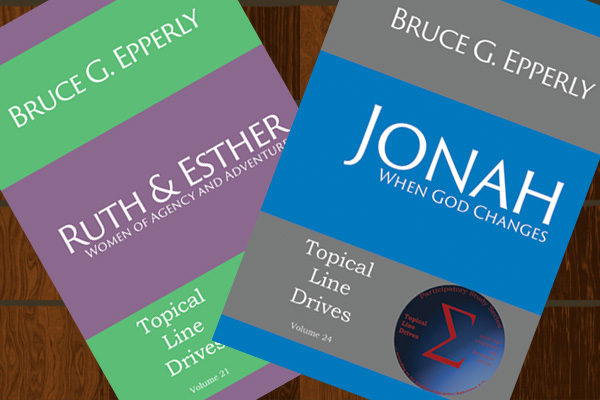Choosing Bible Reading
I was reading an excellent post by Martin LaBar (Sun and Shield) today about our reading choices. He’s commenting on a study that shows that we tend to select reading that confirms our already existing views.
Now I suspect there’s nothing terribly surprising about that. At least most of us assume that other people only read to support their own prejudices. We, of course, just choose to read only the truth!
This idea connected with some current reading. My daughter and her family, who obviously know me well, sent me a gift card for Barnes and Noble for my birthday, and I used it to get a commentary I’ve been wanting, Frank J. Matera’s commentary on II Corinthians. I’ve been reading it for part of my devotional time.
In the exceptional introduction to the book, Matera finds a common theme for the book that connects the gospel to apostolic ministry. To summarize and paraphrase (a fuller explanation of this is on page 14), Paul preaches God who raises the dead, but to participate in this resurrection, one must participate in Christ’s suffering and affliction. Paul becomes part of Christ’s suffering through his suffering in his ministry to the church.
Thus the book presents a picture of ministry that is almost entirely the opposite of the waythe world–and often the modern church–see it. We like to think of great leaders, strong and capable people, called to carry their natural gifts into service, for which they get due reward. That is not New Testament, Christ-like service, however.
While we quote a text or two in 2 Corinthians, on topics like new creation, imputation, and cheerful giving, that is only a tiny portion of the theme–the theme of the book is a defense of Paul’s apostolic minsitry as a fragile, weak vessel used by God.
So what does this have to do with reading choices?
Ask yourself how much time we spend studying various books of the Bible. I recall, for example, that books like Romans and Galatians were pretty popular in the seminary where I studied. Second Corinthians? Not so much.
Indeed, we didn’t really get the whole books of Galatians and Romans. I took a class titles Exegesis of Romans in Greek in my undergraduate program, and we never got past chapter 8. Chapters 9-16? The professor mentioned them a few times, but I had to work on those on my own later.
In graduate school I took a course in Galatians. With effort we got through chapter 4. We missed chapters 5 & 6.
But one of the things 2 Corinthians does is provide us with the application of salvation by faith to ministry–ministry by faith.
Perhaps we ought to spend some serious time on the portions of the Bible that are a bit less popular.



Bible reading is an excellent way of increasing your knowledge and also to know more about god.
Martin’s a deep guy! Enjoy his blog a lot.
Our men’s group had a couple struggling marriages in it. Rather than floating over toward Ephesians 5 or 1 Peter 3 (familiar territory – “oh, if only we could get our wives to submit”) we launched into a deep study of Jeremiah. Very blessed by how we began to relate to God as a frustrated husband, but also as a sinful bride in need of redemption. We would never have gotten such great insight if we’d not taken the road less travelled.
gb/db
oh – Hey Henry, I’m writing a book for evangelicals on the environment. Something Energion would be interested in?
Don – yes, the topic interests me. Obviously I’d need to hear more about the plan, but I do already know you can write! 🙂 E-mail me – pubs@energion.com.
I thought you might be interested in learning about OUR Jewish traditions, one which has embraced the real Christ of the gospel, the Law and the prophets.
If this doesn’t interest you, I apologize in advance.
If you are interested let me tell you that we are the Frankist Association of America. One of our members has a new book out:
http://www.amazon.com/Real-Messiah-Throne-Origins-Christianity/dp/1906787123/ref=sr_1_1?ie=UTF8&s=books&qid=1245892844&sr=8-1
I am not trying to sell you something. We are not ’some kind of cult’ (like Jews could ever take orders from someone!). We’re just a tradition which has lasted for centuries and I think we might be able to teach you a thing or too about that messianic tradition you … ah … stole from us and continue to misrepresent.
If you’re interested, you’re interested. If you’re not, you’re not. No big deal.
If you can’t afford the book you can see the website of one of our living teachers – http://www.stephanhuller.blogspot.com.
I just wanted to let you and the scholarly world that there have always been more than one type of Judaism in the world at any one time. Some forms of the faith had to learn to hide their beliefs in order to survive and perpetuate themselves.
Shalom, God Bless
Everything is perfected in God’s glory (and a rotten, stinking pile of something without)
Beth El Jacob Frank